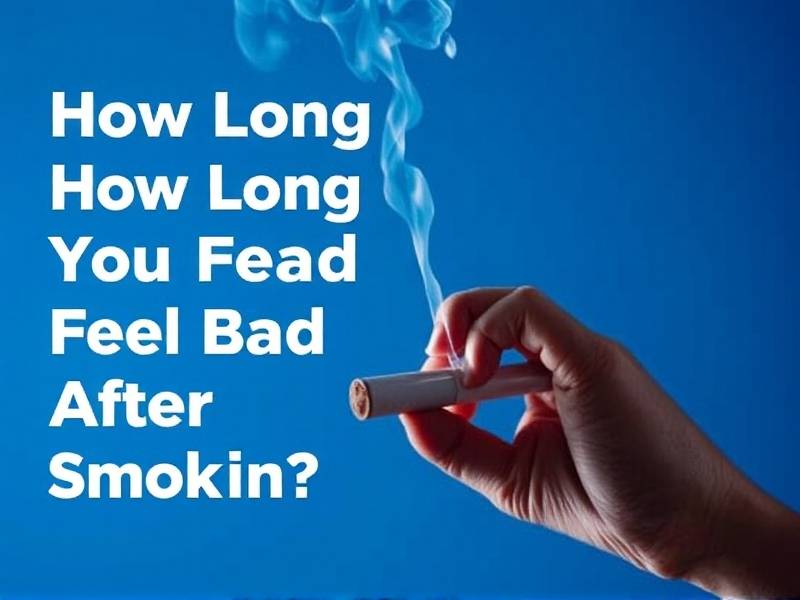How Long Do You Feel Bad After Quitting Smoking? The Truth About the Withdrawal Symptoms
Understanding the Challenge of Quitting Smoking
Quitting smoking is a significant decision that can lead to numerous health benefits. However, it's no secret that the journey isn't easy. One of the most common concerns among smokers who are considering quitting is how long they will experience withdrawal symptoms. This article delves into this topic, providing insights into what to expect and how to manage these symptoms effectively.
What Are Withdrawal Symptoms?
Withdrawal symptoms occur when a person stops using a substance to which they have become dependent. For smokers, this includes nicotine, which is a highly addictive substance found in tobacco products. When you quit smoking, your body reacts by trying to adjust to the absence of nicotine.
Common Symptoms
The most common withdrawal symptoms include:

- Irritability and Anxiety: Many individuals experience heightened irritability and anxiety after quitting.
- Increased Appetite: Some people find that their appetite increases significantly after quitting smoking.
- Sleep Disturbances: Insomnia or changes in sleep patterns can occur as your body adjusts.
- Headaches: Headaches are another common symptom during withdrawal.
- Coughing and Breathing Difficulties: These may arise as your body clears out accumulated tar and mucus from the lungs.
How Long Do These Symptoms Last?
The duration of withdrawal symptoms can vary widely among individuals. Generally, most symptoms peak within a few days or weeks after quitting and then gradually diminish over several months.

Short-Term Effects
During the first few days after quitting, you may feel intense cravings for cigarettes. This period can be particularly challenging but usually peaks within 1-3 days.
Long-Term Effects
After about 2 weeks, many people find that their physical symptoms begin to subside significantly. Within 3 months, most of the physical withdrawal effects should be gone.
However, it's important to note that psychological cravings for smoking can persist longer than physical symptoms. Some people may continue to struggle with psychological cravings for several months or even years after quitting.
Managing Withdrawal Symptoms
Strategies for Coping
Here are some effective strategies for managing withdrawal symptoms:
- Stay Hydrated: Drinking plenty of water can help alleviate some of the discomfort associated with increased appetite.
- Stay Active: Regular exercise can reduce stress and improve mood.
- Seek Support: Joining a support group or seeking counseling can provide emotional support during this challenging time.
- Alternative Treatments: Consider using nicotine replacement therapy (NRT) or other alternative treatments under medical supervision.
Conclusion
Quitting smoking is a process that requires patience and perseverance. Understanding what to expect regarding withdrawal symptoms can help you prepare for the challenges ahead. While it's true that these symptoms can be uncomfortable, they are manageable with proper support and strategies. Remember, every day without smoking is a step towards a healthier future!
